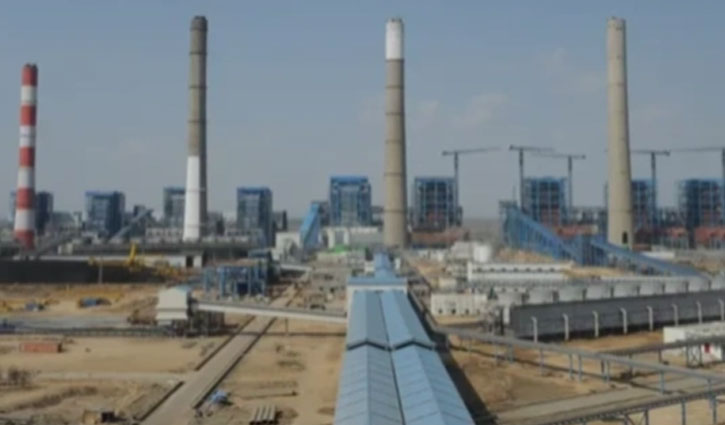The Adani Group of India has recently proposed to the Bangladeshi government to provide an additional 1,600 megawatts of electricity supply. A high-ranking source from the power department confirmed this information. According to the source, the proposed electricity will come from non-renewable sources, with 1,000 megawatts from solar energy and the remaining 600 megawatts from hydroelectric power.
Currently, the Adani Group is supplying Bangladesh with 1,600 megawatts of electricity from the Godda Power Plant in Jharkhand, India, under a Power Purchase Agreement (PPA) for 25 years. Gautam Adani, the head of the group, recently visited Dhaka and held a meeting with Prime Minister Sheikh Hasina.
The source requested anonymity from UNB (United News of Bangladesh) as they are not permitted to disclose information to the media. The source also mentioned that the Adani Group has been given a green signal for their proposal.
The proposed 600 megawatts of hydroelectric power will be imported from Nepal, where Adani is planning to establish a plant. Additionally, the proposed 1,000 megawatts of solar energy will be imported from India, where Adani is currently setting up non-renewable power plants.
According to another high-level source, the Adani Group’s initiative is part of the government’s plan to increase the share of non-renewable energy in total power production by 40% by 2041. At that time, the country plans to have a total power generation capacity of 60,000 megawatts.
Nasrul Hamid, the Minister of Power, Energy, and Mineral Resources, recently stated that Bangladesh is currently producing 930 megawatts of electricity from non-renewable sources. He emphasized the importance of importing electricity from neighboring countries due to the limited availability of non-renewable resources.
Through 30 projects, the government is currently working on generating an additional 1,262 megawatts of electricity from non-renewable sources. Furthermore, 8,668 megawatts of electricity generation projects are under consideration.
Last week, the Danish Ambassador to Bangladesh, Winnie Estrup Petersen, discussed these matters with the relevant authorities in the secretariat.
Moreover, a joint initiative between two Danish non-renewable energy companies has submitted a proposal to the Bangladesh government for a commercial, utility-scale offshore wind power project with a primary capacity of 500 megawatts, valued at 1.3 billion Danish kroner, in the Bay of Bengal.
The proposal has been submitted by Copenhagen Infrastructure Partners (CIP) and Copenhagen Offshore Partners (COP), the world’s leading dedicated greenfield non-renewable energy investor and developer, respectively.




